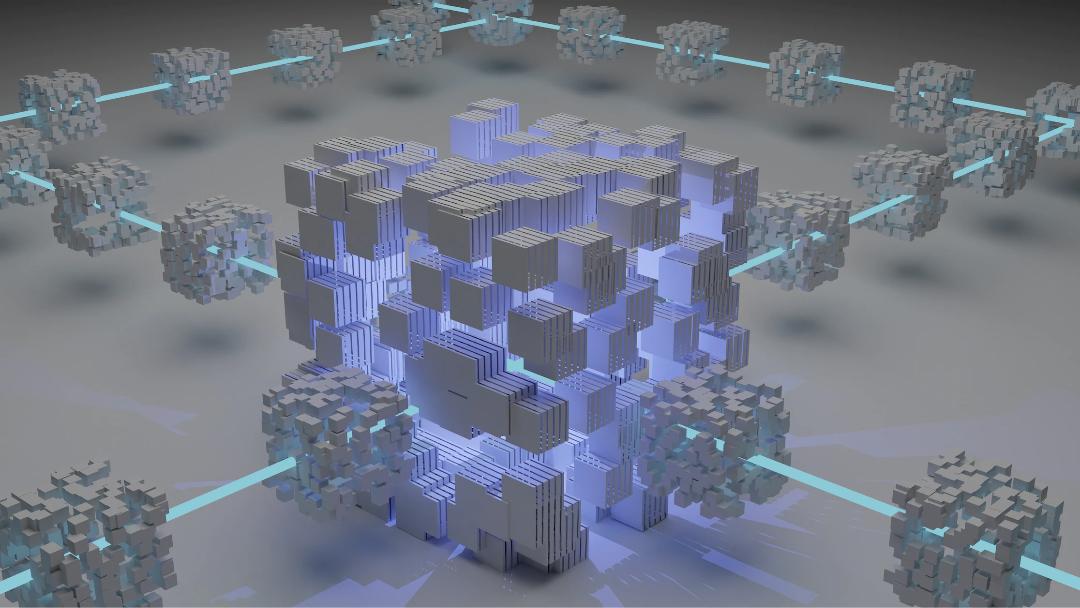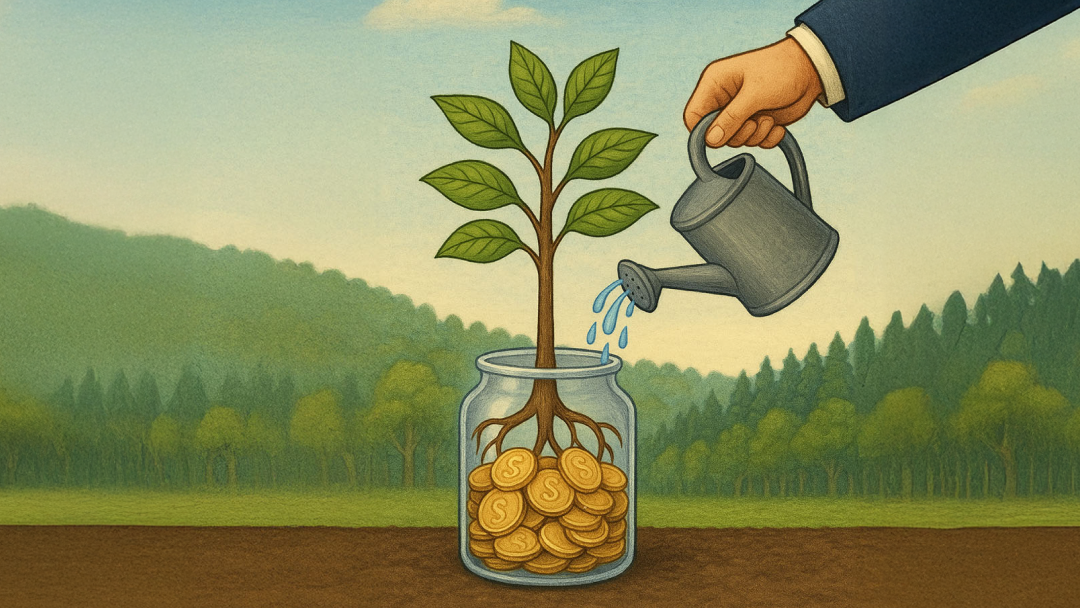Contenuto elaborato a partire dal keynote speech di Enrico Ferro, Responsabile dello Strategic Advisory di Fondazione Links, durante l’evento Tribe by ToTeM del 4 aprile 2023.
Negli ultimi anni, l’ascesa delle criptovalute ha catturato l’attenzione di molti. Tuttavia, al di là delle monete digitali come Bitcoin ed Ethereum, si sta sviluppando un concetto ancora più ampio e potente: la token economy. La token economy è una nuova forma di economia digitale che sfrutta il potenziale dei token per creare un ecosistema virtuoso e decentralizzato. In questo articolo, esploreremo il concetto di token economy, i suoi vantaggi e le sue possibili applicazioni in vari settori.
Ormai internet ha completamente cambiato le nostre vite da oltre vent’anni e sta vivendo una progressiva accelerazione sempre più rapida negli ultimi tempi. Il web “contemporaneo” ci ha messi di fronte al tema della scarsità digitale e della conseguente ascesa dell’Internet del valore. Si è reso quindi necessario superare la demonetizzazione e la mercificazione dei beni digitali, la cui facilità di riproduzione e duplicazione esponenziale ne aveva ridotto drasticamente il valore. Secondo questa logica, l’introduzione del concetto di scarsità digitale costituisce un aspetto fondante della nuova economia digitale basata su beni digitali liquidi, divisibili e senza confini. Così è nato il concetto di token economy.
Ne abbiamo parlato durante l’evento Tribe by ToTeM del mese scorso con Enrico Ferro di Fondazione Links. La fondazione, negli ultimi anni, ha lavorato al lancio del progetto Over The Block: l’iniziativa, condotta da un team multidisciplinare diretto da Ferro, ha l’obiettivo di accrescere la consapevolezza delle opportunità offerte dalle tecnologie esponenziali evidenziandone la capacità di rivoluzionare le imprese e la società.
Cos’è la token economy?
La token economy è un sistema economico basato sull’uso di token, unità digitali che rappresentano un valore o un’utilità specifica all’interno di un ecosistema. A differenza delle tradizionali valute, i token sono costruiti su una blockchain, una tecnologia che garantisce la trasparenza, la sicurezza e l’immutabilità delle transazioni.
L’internet del valore si basa su tre pilastri fondamentali, abilitati dalla blockchain technology:
- Registro distribuito: sistema di record digitali condivisi in una rete che sfrutta la crittografia sicura, l’autenticazione e i protocolli di consenso;
- Smart contracts: consentono di scambiare qualsiasi cosa di valore (denaro, proprietà, azioni) in modo trasparente e senza problemi, senza dover ricorrere a un intermediario;
- Token: unità digitali che racchiudono qualsiasi tipo di valore scambiabile.
La token economy mira a creare un ambiente in cui i token fungono da incentivo per incoraggiare comportamenti desiderati e promuovere l’interazione tra gli utenti.
Come funziona la token economy?
Nel contesto della token economy, i token possono essere utilizzati in vari modi. Ad esempio, possono essere assegnati agli utenti come ricompensa per la partecipazione attiva o per il raggiungimento di obiettivi specifici. I token possono anche essere scambiati tra gli utenti per l’acquisto di beni o servizi all’interno dell’ecosistema. Inoltre, i token possono rappresentare diritti di proprietà, consentendo agli utenti di possedere una quota di un determinato bene o di partecipare a decisioni di voto.
Possiamo distinguere tra alcune macro-tipologie di token:
- Payment Token: valuta digitale agganciata alle valute garantite dallo Stato;
- Digital Asset: rappresenta attività come un credito o un’azione nei confronti dell’emittente;
- Utility Token: fornisce l’accesso a un servizio o a un prodotto, a volte con condizioni preferenziali;
- NFT: contenuto digitale originale caratterizzato da unicità e controllo della sua replicabilità grazie alla validazione della blockchain.
Vantaggi della token economy
La token economy offre diversi vantaggi rispetto ai sistemi economici tradizionali. In primo luogo, la decentralizzazione è uno dei pilastri fondamentali della token economy. Poiché i token sono basati su una blockchain decentralizzata, il potere decisionale e la governance vengono distribuiti tra gli utenti anziché concentrati in un’unica autorità centrale. Questo promuove una maggiore trasparenza e riduce la possibilità di frodi o manipolazioni.
In secondo luogo, la token economy favorisce l’interazione e la partecipazione degli utenti. Gli incentivi forniti dai token incoraggiano gli utenti a contribuire attivamente all’ecosistema, ad esempio fornendo feedback, creando contenuti o condividendo risorse. Ciò crea un circolo virtuoso in cui gli utenti sono ricompensati per il loro contributo, alimentando ulteriormente la crescita e l’innovazione dell’ecosistema.
Nello specifico la token economy:
- rende tracciabili e scambiabili i valori latenti e intangibili a livello individuale, sociale e aziendale;
- abbassa le barriere all’ingresso del reddito da capitale creando nuovi tipi di beni e nuove forme di proprietà del capitale;
- rende la proprietà più accessibile;
- contribuisce ad aumentare la liquidità e la trasparenza;
- permette di spostare il valore alla velocità dell’informazione;
- può contribuire a far entrare la natura nell’equazione economica.
Applicazioni della token economy
La token economy ha il potenziale per essere applicata in vari settori. Ad esempio, nel settore finanziario, i token possono essere utilizzati per semplificare le transazioni e ridurre i costi di intermediazione. Le istituzioni finanziarie possono emettere token per rappresentare titoli, azioni o altri strumenti finanziari, consentendo agli investitori di acquistarli direttamente senza l’intervento di intermediari. Ciò potrebbe rendere i mercati finanziari più accessibili, efficienti e trasparenti.
Nel settore dei giochi e dell’intrattenimento, la token economy può essere utilizzata per creare ecosistemi virtuali in cui i giocatori possono guadagnare e scambiare token in-game per oggetti virtuali, abilità o esperienze di gioco. Ciò fornisce un valore tangibile alle attività di gioco e può creare nuove opportunità per gli sviluppatori di giochi.
La token economy può anche essere applicata nei settori dell’e-learning e delle community online. Ad esempio, le piattaforme di e-learning possono assegnare token agli studenti per il completamento dei corsi o per il raggiungimento di traguardi specifici. Questi token possono poi essere utilizzati per l’accesso a contenuti premium o per sbloccare opportunità di apprendimento aggiuntive. Nelle community online, i token possono essere utilizzati per premiare i membri attivi e incentivare la partecipazione e la condivisione di conoscenze.
Dal punto di vista di un’azienda i token possono essere utili per:
- Marketing: permettono di creare relazioni più profonde, portare a decisioni condivise e a sviluppare esperienze personalizzate
- Innovation Management: agevolano le fasi iniziali del processo di diffusione di un bene o servizio
- Fundraising: contribuiscono alla formazione del capitale affiancandosi a equity e debito.
Conclusioni
La token economy sta rivoluzionando l’economia digitale, offrendo nuove possibilità di incentivazione, partecipazione e trasparenza. Attraverso l’uso dei token, è possibile creare ecosistemi virtuali che consentono agli utenti di generare e scambiare valore dalle proprie attività digitali. Mentre la token economy continua a evolversi, è importante considerare le sfide e le opportunità che essa presenta, al fine di massimizzare i suoi benefici e garantire una gestione adeguata dei rischi.
In definitiva, la token economy apre la strada a nuove forme di interazione economica e può svolgere un ruolo significativo nello shaping del futuro digitale.
Ti interessano più contenuti su questo tema? Visita la sezione Tokenomics del blog di Over The Block.





